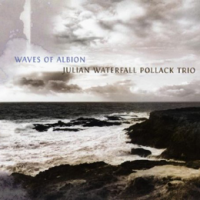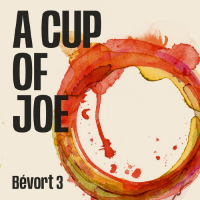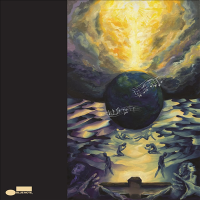Home » Jazz Articles » Extended Analysis » Johnny Winter: Johnny Winter: True to the Blues - The Jo...
Johnny Winter: Johnny Winter: True to the Blues - The Johnny Winter Story
True to the Blues—The Johnny Winter Story does, indeed, focus heavily on the albino Texan's first and most successful decade—and, most assuredly not coincidentally, the time when he was, also like Bloomfield, signed to Columbia Records, a label then prepared to put serious money behind him, and ultimately yield significant visibility. Still, this four-disc/four-and-a-half hour collection does manage to include, on the fourth CD, at least some representation of Winter's post-Columbia discography for labels like Alligator and Virgin, straight through to his 2011 Megaforce release, Roots. There's also a couple of tracks culled from The Progressive Blues Experiment, released by Liberty Records the same year as Winter's Columbia debut, Johnny Winter (1969), and which was, in actual fact, a demo recording—albeit a powerfully assured one that, combined with his first Columbia release, delivered a strong one-two punch that made clear the 25 year-old guitarist wasn't ascending towards arrival; he was already there.
Bloomfield and then-musical partner, keyboardist Al Kooper, were, in fact, more than partly responsible for Winter's signing with Columbia; invited to sit in with them on what was released much later as Fillmore East: The Lost Concert Tapes 12/13/68 (Legacy, 2008), Bloomfield's enthusiastic introduction to the staggering, 10-minute workout of John Lee Hooker's "It's My Own Fault" reflects his clear respect and admiration for Winter. "He's from Texas," says Bloomfield, "and man, this is the baddest motherfucker." While the San Francisco-based guitarist was already peaking in his own career—the result of his tenure with the Paul Butterfield Blues Band, his own group The Electric Flag, and the six months spent playing with Kooper that yielded both Super Session (Columbia, 1968) and The Live Adventures of Mike Bloomfield and Al Kooper (Columbia, 1969), the sad reality is that a combination of drugs and the stars simply not aligning ultimately prevented him from becoming the blues superstar he deserved to be.
Not so with Winter, whose first Columbia record sold a more than respectable couple hundred thousand copies and who would go on to dazzle crowds at Woodstock the same year. Second Winter (Columbia, 1969) followed a mere four months later and, aside from being memorable as a two-LP set that only occupied three sides (the fourth simply left blank), it also delivered an even stronger message that this Texas-born guitarist—who, by the time of his emergence, had already paid more than his share of dues on the road for nine years, starting at the age of fifteen—was a true force of nature, a lightning-fast player thoroughly versed in the blues tradition but ready for greater stardom in the world of rock 'n' roll.
In some ways, True to the Blues isn't a completely appropriate title, given Winter would soon, at the urging of manager Steve Paul, move away from the purer blues of his first two records for Columbia. Staging his first "comeback" after being sidetracked with a relatively short-lived heroin addiction that only lasted a few months but forced him to retreat for a year to get clean, Winter resurfaced with 1973's well-received Still Alive and Well (Columbia) and a glitzy wardrobe that included a red-lined black cape over a white spandex jumpsuit with silver-studded bell-bottoms, a large amethyst medallion worn over his bare chest and studded armbands with silver streamers draping down towards the floor. Winter may have been a bluesman, but he also knew what people wanted and, if True to the Blues accomplishes anything, it's to demonstrate that Winter's career successfully managed to skirt the line between purer blues and rock and roll stardom with complete authenticity and zero compromise.
Between his first two Columbia recordings and his one-year break to clean up, however, Winter released two albums with the group that ultimately became his most successful, even if its first record, Johnny Winter And (1970), was the poorest-selling album of the guitarist's Columbia years. A quartet revolving around members of the defunct McCoys, who'd scored big in the '60s with "Hang on Sloopy"—guitarist/vocalist Rick Derringer (real name Zehringer) and his drummer brother Randy Z (later replaced in Winter's band by Bobby Caldwell), along with bassist/vocalist Randy Jo Hobbs—it may not have sold well, but it wasn't because the music was bad—if nothing else, it introduced the Derringer-penned "Rock and Roll Hoochie Koo," which would become a rock anthem for Winter, and that's not the only strong track on the album; Winter's riff-driven "Guess I'll Go Away" and Derringer's funkier "On the Limb" are also included here, and leave the album's poor sales a curiosity. Still, the quartet's follow-up, 1971's Live, would prove to be a far bigger success, in particular for its searing, chart-topping version of the The Rolling Stones' "Jumpin' Jack Flash," but also for another lengthy excursion into "It's My Own Fault," proving Winter had by no means entirely deserted the blues that were at the heart of everything he did then, previously and subsequently.
While Winter's "comeback" was successful, it was still the beginning of his decline from superstardom. Even younger brother, singer/multi-instrumentalist Edgar Winter—three years younger, another albino who began in the shadow of his big brother but ultimately overtook his career in a big way with the release of the multi-million seller They Only Come Out at Night (Epic, 1972)—couldn't save his career when the two collaborated on the admittedly superb Together (Blue Sky, 1976), represented here by just one track, a righteously funky take on the '60s Bob & Earl hit, "Harlem Shuffle" and which brought together members of both Winter brothers' respective bands.
The meat of the first disc is Winter's early, more blues-driven days of Johnny Winter, The Progressive Blues Experiment and Second Winter, while the second disc focuses heavily on Winter's collaboration with Derringer. It also includes the only three previously unreleased tracks of the box—one of them not really counting, a spoken introduction of the band which found brother Edgar sitting in on drums for the last-minute absent Randy Z (illness) and which, according to Johnny, had just finished cutting what would become Johnny Winter And. Surprisingly, given the more decidedly rock 'n' roll stance the group would later adopt, its reading of Sonny Boy Williamson II's "Eyesight to the Blind" is a totally credible blues, in sharp contrast to The Who's rearranged version on its still-seminal rock opera, Tommy (MCA), released the previous year.
But Winter's "Prodigal Son," the other unreleased track, is a clear harbinger of things to come, a gritty piece of rock and roll, followed by a live version of the slow grind blues "Mean Mistreater," one of the highlights of Johnny Winter (also included here). Winter's original trio with bassist Tommy Shannon—who would later become a member of Double Trouble, supporting the then-15 year-old but blues reviver-to-be of the 1980s, Stevie Ray Vaughan—and drummer "Uncle" John Turner was undeniably a stronger blues unit, but the members of Johnny Winter And were clearly more broad-minded and versatile, suiting Winter's desire to find a happy middle ground where blues and rock and roll could co-exist.
If Mike Bloomfield's goal was to make his guitar sing, Winter's was clearly to make his growl; Bloomfield wanted to soar, Winter wanted to sear. A more overtly virtuosic player, Winter often favored speed and dexterity, even on slide, where it's a much greater challenge to articulate runs at a rapid pace. But Winter managed it, and if he goes down in history as one of the great blues guitarists of his generation alongside Bloomfield, True to the Blues also opens a broader window into a player who, on the set-opening "Bad Luck and Trouble," from The Progressive Blues Experiment, demonstrates equal acumen on mandolin and harmonica. His career may have taken a sidestep into rock stardom with Johnny Winter And, but by the end of the '70s Winter had returned to a purer blues stance, as later tracks truly attest, including the up-tempo "The Illustrated Man," from Let Me In (Virgin, 1991)—aptly titled, given the heavily tatted Winter—and more laidback, swinging "Hard Way," from Hey, Where's Your Brother (Virgin, 1992).
Winter was a strong writer, but his interpretive skills were, perhaps, even stronger, as two versions of Bob Dylan's "Highway 61 Revisited" attest: the first, a heated studio take from Second Winter; the other an absolutely incendiary live version from Bob Dylan —The 30th Anniversary Concert Celebration (Columbia, 1993), where the guitarist pretty much steals the show, as gritty in his delivery of Dylan's lyrics as he is some slide playing that would be considered impossible, were it not there for all to hear.
The box closes with two recent tracks from Roots, one featuring Vince Gill (Chuck Berry's "Maybellene"), proving the country crooner still has more than what it takes to be a compelling six-stringer, the other featuring a younger generation slide wizard, Derek Trucks—famous for both his own work and his tenure with The Allman Brothers Band that, as the seminal southern group celebrates its 45th year, is preparing to pack it in. Trucks goes head-to-head with Winter on the Robert Johnson classic "Dust My Broom," but there's no competition here, only mutual respect.
Winter may not be the star he once was, but these two recent tracks wrap up True to the Blues—The Johnny Winter Story with all the evidence required to know that he's lost none of his edge, none of his acumen, and none of his grease. With roots music experiencing something of a revival through the work of groups like Tedeschi Trucks Band, Widespread Panic and Gov't Mule, True to the Blues—The Johnny Winter Story is an important document to remind young up-and-comers that at least some of their own roots remain alive and well. Some of Winter's mid-'70s rock and roll now sounds a touch dated, but when he turns to the blues, he's as timeless as Bloomfield. The relatively concurrent release of True to the Blues—The Johnny Winter Story and From His Head to His Heart to His Hands only serves to shine a light on two of the most significant blues players to emerge in the 1960s—one still around, one sadly not, but both deserving of greater recognition, respect and appreciation in the new millennium.
Track Listing
CD1: Bad Luck and Trouble; Mean Town Blues; Michael Bloomfield Introduction of Johnny Winter; It's My Own Fault (live); I'm Yours and I'm Hers; Mean Mistreater; Dallas; Be Careful With a Fool; Leland Mississippi Blues (live); Memory Pain; Highway 61 Revisited; Miss Ann; Hustled Down in Texas; Black Cat Bone (live); Johnny B. Goode (live). CD2: Eyesight to the Blind (live); Johnny Winter's Intro; Prodigal Son (live); Mean Mistreater (live); Rock and Roll Hoochie Koo; Guess I'll Go Away; On the Limb; It's My Own Fault (live); Jumpin' Jack Flash (live); Good Morning Little Schoolgirl (live); Mean Town Blues (live). CD3: Still Alive and Well; Rock Me Baby; Rock & Roll; Rollin' Cross the Country; Hurtin' So Bad; Bad Luck Situation; Self Destructive Blues; Sweet Papa John; Rock & Roll People; Harlem Shuffle (with Edgar Winter); Bony Marone (live); Roll With Me (live); Tired of Tryin'; TV Mama; Walkin' Thru the Park; I Done Got Over It (live, with Muddy Waters & James Cotton). CD4: One Step at a Time; Honest I Do; Nickel Blues; Talk is Cheap; Wolf in Sheep's Clothing; Bon Ton Roulet; Don't Take Advantage of Me; Master Mechanic; Mojo Boogie; Stranger Blues (live); Illustrated Man; Hard Way; Highway 61 Revisited (live); Maybelline (featuring Vince Gill); Dust My Broom (featuring Derek Trucks).
Personnel
Johnny Winter
guitar, electricJohnny Winter: vocals (CD1#1-2, CD1#4-15, CD2-4), electric guitar (CD1#1-2, CD3#13-15), National steel guitar (CD1#1-2), harp (CD1#1-2, CD1#5-8), mandolin (CD1#1-2), lead guitar (CD1#5-13), slide guitar (CD1#5-13, CD3#1-3, CD3#13-15, CD4#14-15), guitar (CD1#4, CD1#14-15, CD2, CD3#1-12, CD3#16, CD4#1-15), metal body acoustic guitar (CD3#13-15), bass (CD3#13-15), drums (CD3#13-15); Tommy Shannon: bass (CD1#1-2, CD1#10-15), electric bass (CD1#5-8); "Uncle" John Turner: drums (CD1#1-2), percussion (CD1#5-15); Mike Bloomfield: spoken word (CD1#3), guitar (CD1#4); Al Kooper: organ (CD1#4); Paul Harris: piano (CD1#4); Jerry Jemmott: bass (CD1#4); John Cresci: drums (CD1#4); Willie Dixon: acoustic bass (CD1#6); Walter "Shakey" Horton: harp (CD1#6); Edgar Winter: drums (CD1#1-4), piano (CD1#10-13, CD4#1-3), organ (CD1#10-13, CD3#4-5), alto saxophone (CD1#10-13, CD3#4-6), backing vocals (CD3#4), tack piano (CD3#4-6), ARP strings (CD3#4-6), vocals (CD3#10), saxophone (CD3#10); Rick Derringer: guitar (CD2, CD3#10), vocals (CD2#5-11), backing vocals (CD3#10); Randy Jo Hobbs: bass (CD2, CD3#1-3, CD3#5, CD3#7-10), vocals (CD2#5-9), percussion (CD3#7-9), handclaps (CD3#7-9); Randy Z: drums (CD2#5-7); Bobby Caldwell: drums (CD2#8-11); Richard Hughes: drums (CD3#1-10), percussion (CD3#7-9), hand claps (CD3#7-9); Dan Hartman: bass (CD3#4-6), guitar (CD3#4-6), backing vocals (CD3#4, CD3#10), piano (CD3#10); Kansas: handclaps (CD3#4); Randy Brecker: trumpet (CD3#5); Lew Del Gatto: tenor saxophone (CD3#5); Floyd Radford: guitar (CD3#10), rhythm guitar (CD3#11-12); Chick Ruff: drums (CD3#10); Muddy Waters: vocals (CD3#13-16), guitar (CD3#16; James Cotton: harp (CD3#13-16); "Pinetop" Perkins: piano (CD3#13-16); Bob Margolin: electric guitar (CD3#13-16); Charles Calmese: electric bass (CD3#13-16); Willie "Big Eyes" Smith: drums (CD3#13-16); I.P. Sweet: bass (CD4#1-3); Bobby (T) Torello: drums (CD4#1-6); Pat Ramsey: harp (CD4#1-3); Pat Rush: guitar (CD4#1-3); Jon Paris: bass (CD4#4-6, CD4#10), harmonica (CD4#4-6); Tom Strohman: saxophone (CD4#4-6); Ken Saydak: piano (CD4#7-9); Johnny B. Gayden: bass (CD4#7-8); Casey Jones: drums (CD4#7-8); Gene Barge: tenor saxophone (CD3#7); Terry Ogolini: tenor saxophone (CD4#7); Steve Elsen: baritone saxophone (CD4#7); Don Tenuto: trumpet (CD4#7); Jim Exum: trombone (CD4#7); Jeff Ganz: bass (CD4#9, CD4#11-12); Tom Compton: drums (CD4#9-12); Dr. John: piano (CD4#11); G.E. Smith: guitar (CD4#13); Steve Cropper: guitar (CD4#13); Booker T. Jones: organ (CD4#13); Donald "Duck" Dunn: bass (CD4#13); Anton Fig: drums (CD4#13); Jim Keltner: drums (CD4#13); Paul Nelson: guitar (CD4#14-15); Vince Gill: guitar (CD4#14); Derek Trucks: slide guitar (CD4#15); Mike DiMeo: piano (CD4#14-15); Scott Spray: bass (CD4#14-15); Vito Luzzi: drums (CD4#14-15).
Album information
Title: Johnny Winter: True to the Blues - The Johnny Winter Story | Year Released: 2014 | Record Label: Legacy Recordings
Tags
PREVIOUS / NEXT
Support All About Jazz
 All About Jazz has been a pillar of jazz since 1995, championing it as an art form and, more importantly, supporting the musicians who make it. Our enduring commitment has made "AAJ" one of the most culturally important websites of its kind, read by hundreds of thousands of fans, musicians and industry figures every month.
All About Jazz has been a pillar of jazz since 1995, championing it as an art form and, more importantly, supporting the musicians who make it. Our enduring commitment has made "AAJ" one of the most culturally important websites of its kind, read by hundreds of thousands of fans, musicians and industry figures every month.






















